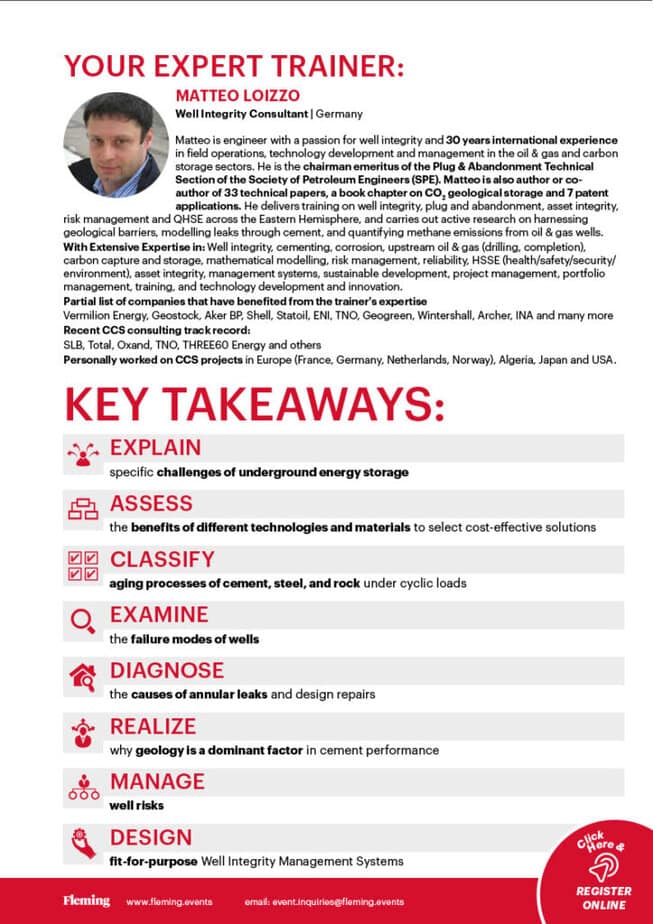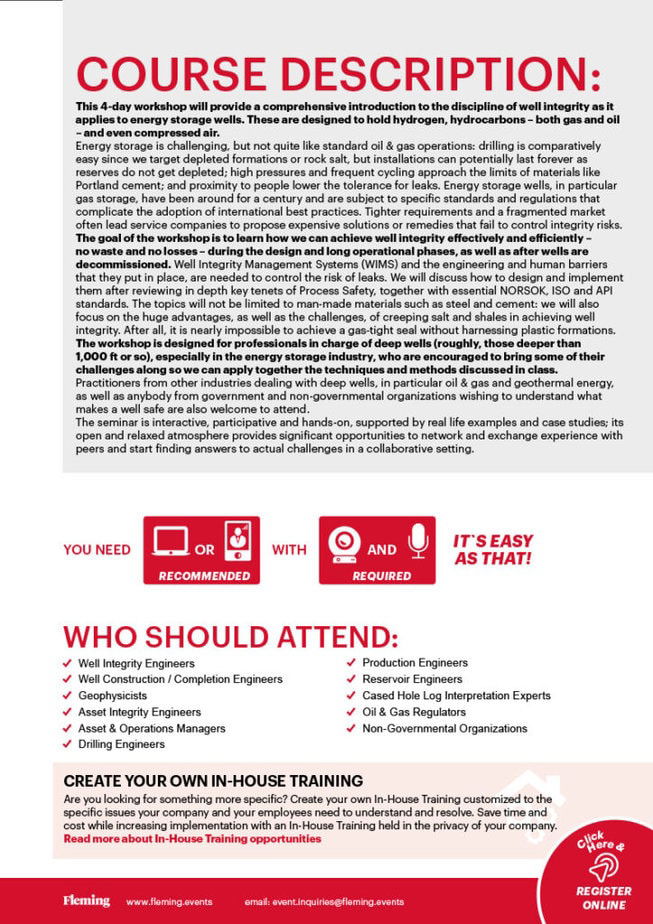Course description
This 4-day workshop will provide a comprehensive introduction to the discipline of well integrity as it applies to energy storage wells. These are designed to hold hydrogen, hydrocarbons – both gas and oil – and even compressed air.
Energy storage is challenging, but not quite like standard oil & gas operations: drilling is comparatively easy since we target depleted formations or rock salt, but installations can potentially last forever as reserves do not get depleted; high pressures and frequent cycling approach the limits of materials like Portland cement; and proximity to people lower the tolerance for leaks. Energy storage wells, in particular gas storage, have been around for a century and are subject to specific standards and regulations that complicate the adoption of international best practices. Tighter requirements and a fragmented market often lead service companies to propose expensive solutions or remedies that fail to control integrity risks.
The goal of the workshop is to learn how we can achieve well integrity effectively and efficiently – no waste and no losses – during the design and long operational phases, as well as after wells are decommissioned. Well Integrity Management Systems (WIMS) and the engineering and human barriers that they put in place, are needed to control the risk of leaks. We will discuss how to design and implement them after reviewing in depth key tenets of Process Safety, together with essential NORSOK, ISO and API standards. The topics will not be limited to man-made materials such as steel and cement: we will also focus on the huge advantages, as well as the challenges, of creeping salt and shales in achieving well integrity. After all, it is nearly impossible to achieve a gas-tight seal without harnessing plastic formations.
The workshop is designed for professionals in charge of deep wells (roughly, those deeper than 1,000 ft or so), especially in the energy storage industry, who are encouraged to bring some of their challenges along so we can apply together the techniques and methods discussed in class.
Practitioners from other industries dealing with deep wells, in particular oil & gas and geothermal energy, as well as anybody from government and non-governmental organizations wishing to understand what makes a well safe are also welcome to attend.
The seminar is interactive, participative and hands-on, supported by real life examples and case studies; its open and relaxed atmosphere provides significant opportunities to network and exchange experience with peers and start finding answers to actual challenges in a collaborative setting.





